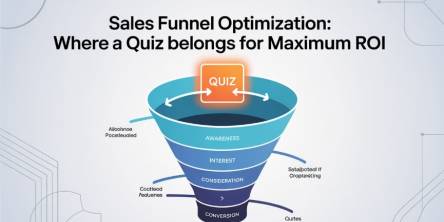Top Trends in Security Testing and Vulnerability Management

Many businesses fail to conduct frequent security testing despite thinking it's far critically important to securing their systems and data. One in five of businesses surveyed admitted they will not do any security testing, despite the fact that 95 percent of study respondents reported encountering one of the dozen common security issues associated with security vulnerabilities.

Conduct security testing
The findings are based on an Osterman Research review of 126 security experts who have knowledge about or responsibility for security testing in their organizations.
Important findings
Most organizations are not proactive about security testing - Less than one in four organizations consider themselves to be "very proactive" in the circumstance of security testing, while almost one-half are "somewhat proactive. " However, practically one-third of organizations consider themselves "somewhat" to "very" reactive about security tests, or that their security testing posture is "non-existent. "
Many organizations do not conduct security testing - One in several organizations has not performed security testing of any kind during the past half a dozen months. The type of that do conduct security testing, sixty six percent do so only monthly or less frequently, and most do not perform regular security tests after every infrastructure change.

Most organizations conduct security tests by using a combo of in one facility resources and third-party tests services, although two in five organizations manage security testing only in-house.
Most organizations find security testing a very important best practice - Although many organizations do not conduct security screening, two-thirds think that security screening is a valuable best practice.
Security testing and reviews are infrequent and, in some cases, organizations are leaving it upward to fate - The two security testing and reviews of these tests are not commonplace: only 5 % perform detailed reviews of security testing to examine vulnerabilities on a daily basis and only 24 per cent do so weekly or multiple times during the week.
Meanwhile, 25 % of the organizations surveyed perform these reviews only quarterly or annually, and 20 percent do so only when they perceive the need, creating a situation where web based simply guessing when to test their systems.
Security skills shortage and testing challenges abound - Among the leading security testing challenges uncovered in the survey, the most commonly cited are insufficient staffing, insufficient time which to perform the security tests, and insufficient skills to support regular screening.
More than half of organizations are turning to third parties for help with security testing - To address these issues, a big proportion of those surveyed are open to the idea of using 3rd parties, like managed security services providers, to perform security testing on their account. Thirty-five percent of those surveyed already do spouse with a third-party for security testing, and another 21 percent plan to do so during the next 12 months. Only 9 percent of those surveyed don't plan to use third-party security testing services.

Nobody is immune to cyber attacks - 95 percent of survey respondents reported encountering one of the dozen common security issues associated with security vulnerabilities that were listed in the survey.
"Emerging trends like darkness IT, mobility and Internet of Things make regular security testing more important than ever, " said Kevin Overcash, Director of SpiderLabs at Trustwave. "This includes both automated security testing, which will help uncover potential vulnerabilities and weak configurations, and in-depth penetration testing, which is designed to exploit weaknesses just like criminals would in the real world. "
"This report should be a major wake-up call for businesses and gov departments that a new approach and strategy for security vulnerability testing is required to better fortify databases, networks and apps against data theft and breaches, " said Jordan Osterman of Osterman Research. "
Organizations need to look at security testing more comprehensively and perform it more frequently. Increasingly, security-savvy organizations are turning to managed security services providers for help in this area. "
Similar Articles
In 2026, Microsoft Excel continues to power the U.S. business ecosystem, supporting over 80% of financial modeling, 70% of operational reporting, and nearly 65% of analyst-driven decision workflows across enterprises.
The rapidly growing volume and speed of digital transactions have had a whole lot of implications for businesses
We live in the age of cloud computing. That's plain to see. However, what may escape many are the operational and financial challenges of managing multiple independent clusters.
Times have changed and how! Take modern technology and the fast-paced digital economy, it is driving. Given the market conditions, any company's infrastructure has become more than just a technical detail.
It has been for everyone to see that the modern digital economy is distinguished by high volume, real-time financial transactions.
Business success has become reliant on efficiency and agility of the underlying technology infrastructure. Clearly, companies now depend on cloud computing to provide seamless services while managing exponential data growth.
Hospitals operate in environments where availability and patient safety are paramount at all times. As medical supply chains expand and regulatory oversight becomes more demanding, manual tracking methods introduce delays and risk.
Every sales funnel has one core goal: turn attention into revenue as efficiently as possible. Yet many funnels leak value at critical stages—visitors bounce, leads go cold, and sales teams chase prospects who were never a good fit.
Decentralized Finance (DeFi) has transformed how users earn passive income through blockchain-based financial systems. Among its most popular use cases,









